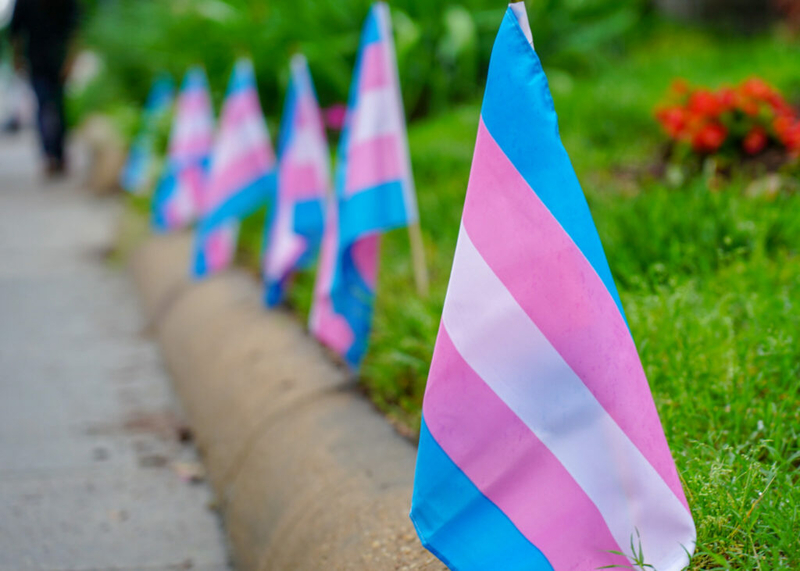To transgender Louisianians, abortion ban yet another health care barrier

Ed Abraham has dreams of getting pregnant and starting a family. But due to the abortion ban, Abraham, a transmasculine person, worries he will be forced to leave the state to achieve his dream.
“I am very wary, being a trans person, of how I’ll be treated in hospital settings, if I’ll get decent care to begin with,” Abraham said. “Without the right to abortion, I don’t think anybody can be safely pregnant anywhere in a state that bans abortion.”
While much of the discourse surrounding abortion in the weeks since the U.S. Supreme Court reversed Roe v. Wade has focused on the plight of women who identify with their biological sex, they are not the only people who seek abortion or pregnancy care.
While people such as Abraham hope to have children, other transmasciline, nonbinary and other gender non-conforming people worry about what they will do if they become pregnant accidentally.
While pregnancy is life-altering and often traumatic for many people, it can trigger gender dysphoria to a person who does not identify as a woman. For those who are gender non-conforming, the distress can be life-threatening. One study indicated as many as 82% of transgender people have considered suicide.
Steph Lee, a nurse practitioner at Crescent Care, a New Orleans clinic whose patients include the LGBTQ community, said abortion care for those patients is essential gender-affirming treatment.
“They should no longer be pregnant if that is causing their dysphoria,” Lee said.
Lee followed up to explain that while that some people may still want to continue their pregnancy, that dysphoria can be a dealbreaker for many.
“Pregnancy can worsen gender dysphoria — especially if it is unwanted,” Lee said. “And they should not be pregnant if they don’t want to be pregnant.”
The closure of Louisiana’s three abortion clinics, pending a legal challenge of the state’s near-total abortion ban, is the latest instance of a lack of gender-affirming care. The general term describes medical treatments meant to align a person’s physical state with their gender identity. It can include anything from prescription hormones to surgery and is not specific to transgender people; cisgender people also seek gender-affirming care.
According to Lee, Louisiana has just one surgeon who accepts Medicaid that specializes in top surgery. The procedure either removes or constructs breast tissue to make a person look more masculine or feminine, respectively. No surgeons in the state perform bottom surgery, a more complicated process to construct either a vagina or a penis, Lee said.
Dr. Deanna Dawson, an OB-GYN resident in New Orleans, expressed frustration with what the ban means for her transgender patients.
“There are trans folks who are able to become pregnant and may not want to continue their pregnancies,” Dawson said. “And on top of dealing with the challenges they face just based on their identity, having this additional barrier and additional challenge of having yet another right obliterated and taken from them just by merely existing, I think is hard to put into words.”
Mar Ehrlich, a nonbinary New Orleans resident, described gender-affirming care as life-saving for transgender and gender non-conforming people.
“It is one way to move around in public more safely as well,” Ehrlich said. “To be able to be seen the way that you would like people to see you rather than being questioned and exposing you to dangers.”
Being able to have autonomy over your body and your way of life is just as important, Ehrlich added.
Just as concerns over the inability to terminate an unwanted pregnancy is shared among cisgender women and transmasculine and nonbinary people, so is the worry about what Louisiana’s abortion ban means for wanted pregnancies.
Abraham said he was already apprehensive about becoming pregnant as a transmasculine person in Louisiana. After the Supreme Court decision in June, he said he feels it’s impossible for him, or anyone, to have a safe pregnancy here.
Even before Louisiana’s abortion ban took effect, a pregnancy was a minefield for a transmasculine person, Lee said. Gendered spaces and language ubiquitous in OB-GYN offices, could lead pregnant transgender people to miss important prenatal appointments. Pink decor and feminized language, including clinics with names including the term “woman,” can trigger gender dysphoria for pregnant men and nonbinary people.
Patients identified as men in their health insurance policies could be denied access to procedures such as cervical checks because their insurer may not recognize that a man can have a cervix, Lee added.
“How many indignities must one suffer in those spaces before one decides ‘I’m just going to do this on my own,’” Lee said, suggesting that patients might give up and manage their own pregnancies without medical care.
Despite what they see as shameful treatment, Ehrlich and Abraham said they aren’t ready to give up on Louisiana.
“I really want to be fighting with people to make sure that there’s still access to to abortion care and to gender affirming care, if it gets to that point,” Ehrlich said.
Abraham said that while it has always been hard to love Louisiana, the culture and the people are worth fighting for.
“If you keep pushing people out or putting people in harm’s way, then we’re risking losing everything that’s great about Louisiana,” he added.








